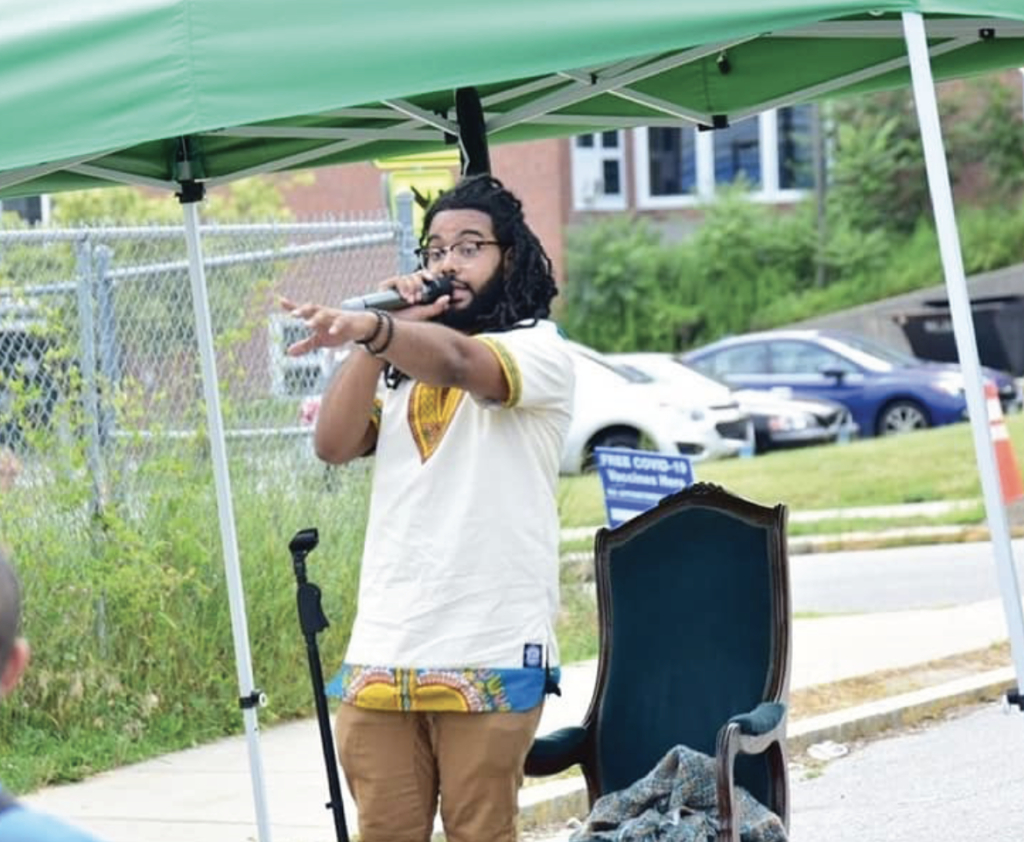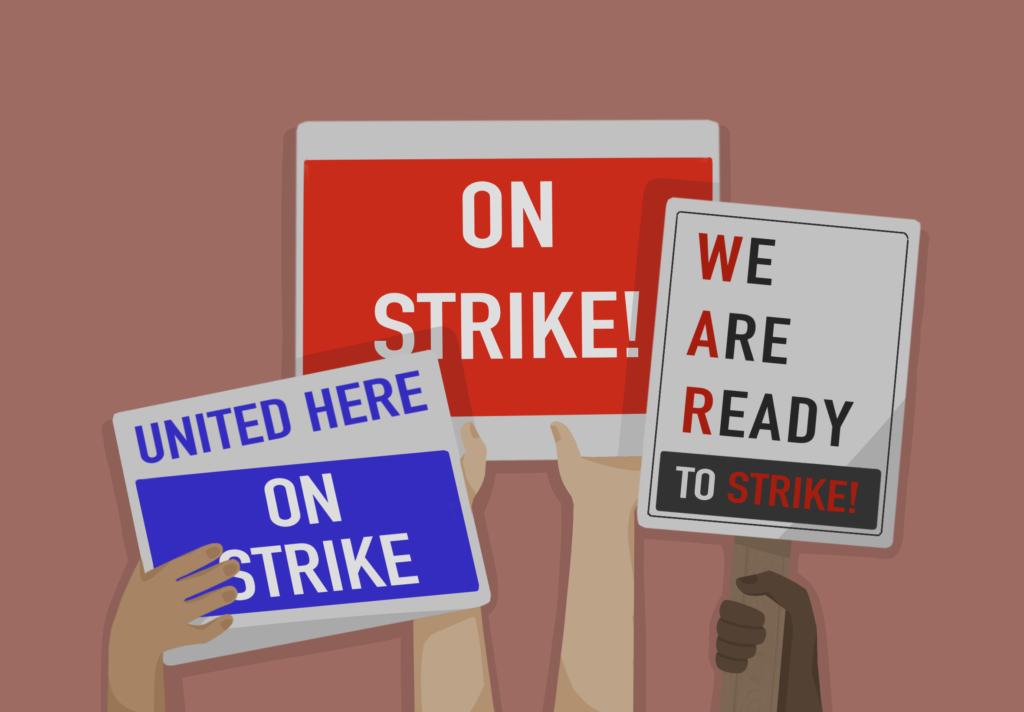
When creating a community, it is critical to develop engaging events that unite people over a common interest. In the spirit of hosting local events to build community, there has been an effort to coordinate programming that builds connections in a population that is often overlooked and underserved: Black teens, especially those interested in the arts. On Saturday, April 9, New London’s Lyman Allyn Art Museum hosted “A Celebration of Black Poets in Connecticut,” an event aimed to “highlight the work and knowledge of six award-winning contemporary Black poets,” according to the Museum.
The event was an endeavor organized through the Lyman Allyn Museum with the financial support of the CT Humanities nonprofit and the Connecticut Office of the Arts. Hartford Poet Laureate Frederick-Douglass Knowles II and New London Poet Laureate Josh Brown began the event with a youth writing workshop and later hosted an open mic for young writers to share their poetry.
The event was also attended by invited speakers, such as fellow Antoinette Brim-Bell, from the Cave Canem Foundation, fellow Kate Rushin from the Artists Foundation, and the 2017-2021 New London Poet Laureate Rhonda Ward.
The Art Museum touted the event as a tribute to the “challenges and triumphs as writers, and the idea of shaping a legacy for young poets,” as described by the Art Museum. This celebration of Black poets in Connecticut is the first of its kind for New London, arising from the collaboration between Ms. Eileen Donovan, Director of Learning and Engagement for the Lyman Allyn Art Museum, and the current Connecticut Poet Laureate Margaret Gibson.
According to Ms. Donovan, Ms. Gibson was inspired to coordinate this event because she wanted to showcase the “future of under-represented poets, but wonderful, powerful poets of Connecticut and so we shaped together the idea of the celebration of Black poets in Connecticut.” Using Ms. Gibson’s network as Poet Laureate, she was able to assemble a panel of notable local Black poets.
Ms. Donovan noted the timing of the event, which has been in the works since the fall: “April is National Poetry Month and so a great time to have a poetry event is April, … we like the idea that we can have the story that is also Black history, Black stories. That it’s not in February, and you know, to continue to promote the idea that Black history is all year long.”
Ms. Donovan explained that the Museum, as a well-established part of the community, felt obligated to uplift the under-represented voices in the Connecticut community. “The Lyman Allyn as a museum is a bit of an older traditional white organization, and so it is part of our job to promote the voices of concurrent contemporary artists and people of color in order to show that art can take place in so many different forms by so many different people; and is excellent in so many ways and that these voices are valuable and that we want to support these voices.”
In this spirit, the Museum handpicked and reached out to speakers. Ms. Adriane Jefferson, the moderator of the event, explained, “I think it’s so important that we are amplifying and giving a platform to Black and brown artists. And that we are preserving the rich culture and stories that they create through their work. So it was really an opportunity for me to also honor a lot of the people that I respect who are going to be sitting on this panel,” she said.
Just as racial identity was a significant factor in the event’s audience, so was age. For workshop leader Mr. Brown, there was a unique significance in the demographics. Throughout his extensive experience as a poetry teacher, he noted the scarcity of young Black male poets like himself. With this event, he hoped to spread the idea of private writership to youth at the event, especially Black males. “It’s not a lot of people writing, or if they do, it’s almost like a secret. … I think there’s a big difference between being a private writer and a secret writer,” he said. To combat this issue of secret writership, Mr. Brown hoped that the event, the workshop he led, and the presence of other passionate artists would inspire young people to participate in creating art.
Ms. Jefferson hoped the celebration would have a large impact on young people. “I hope people go away seeing something. Seeing themselves.” She continued, “be inspired to go and do more within your own community. Through whatever you’re passionate about … I just want people to walk away inspired … and seeing their own potential.”
The event’s theme, “The Power of Words,” conjured strong connections to simple but everlasting rules for the panelists. Ms. Jefferson referenced the saying “sticks and stones may break my bones, but words will never hurt me,” to express her disagreement. “Words are the most powerful tool that we have in order to communicate, in order to effectively use our voices to amplify change,” she countered.
Mr. Brown was reminded of the adage: “the pen is mightier than the sword.” For him, this took the form of using discomfort as a source of inspiration. His stance fell in line with his interpretation of the event’s theme, “The Power of Words.”
“Now more than ever, we avoid things that make us uncomfortable … It’s important to hear these bits even if they make us uncomfortable. The words are powerful; that’s why we started avoiding them because they make us feel some kind of way … I encourage people to lean into being uncomfortable. Lean into having to relearn some things and not to avoid those. There’s healing in that too,” he said. “Not only is it that words are impactful and that words can be raw, but it’s also that they could be healing. You can find more unity if you really take the time to listen to one another.”
The significance and tradition of Black poetry are an inexorable component of the celebration. To Ms. Jefferson, Black poetry means “Black joy and Black pride. It means cultural preservation. It means advocacy.”
Mr. Brown’s goal and words of advice to young writers aspire to encourage creation. “Go create. Whatever it is, do it. Stop waiting for a sign. Stop waiting for permission. We need you to write more. And we need to hear your experience, what you’ve seen, what you’ve observed. Your solutions. Your questions.”




